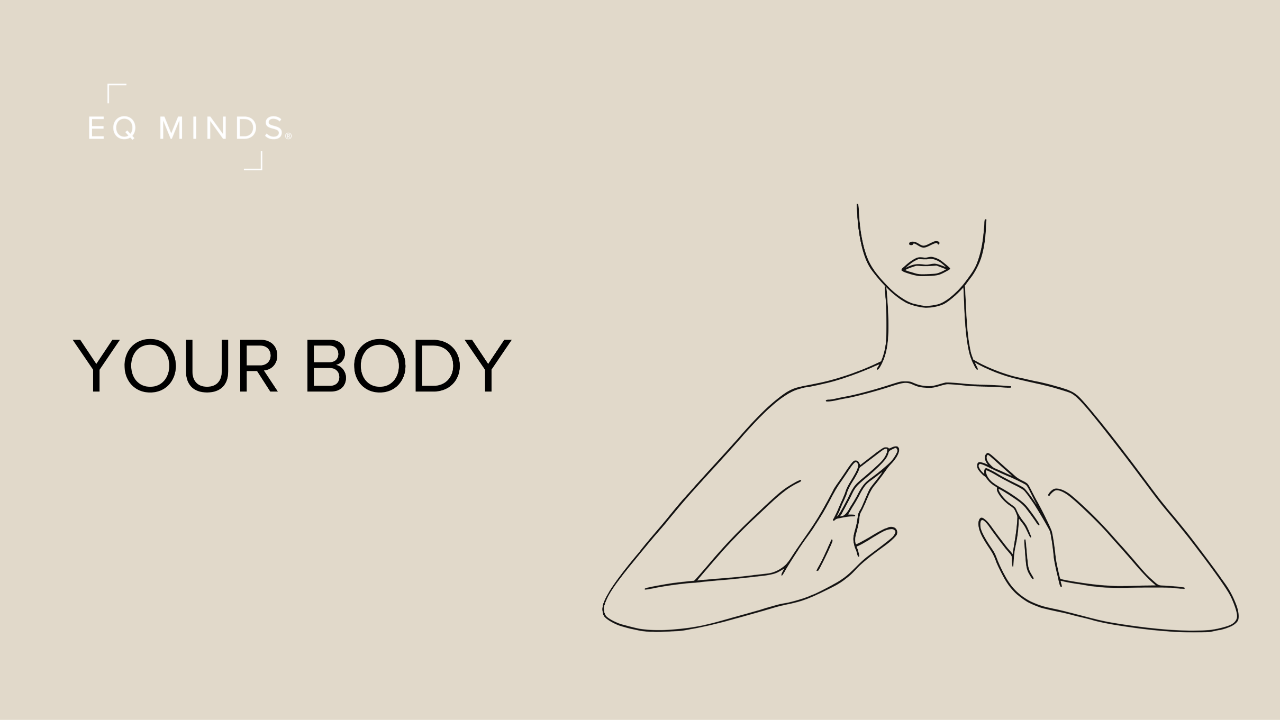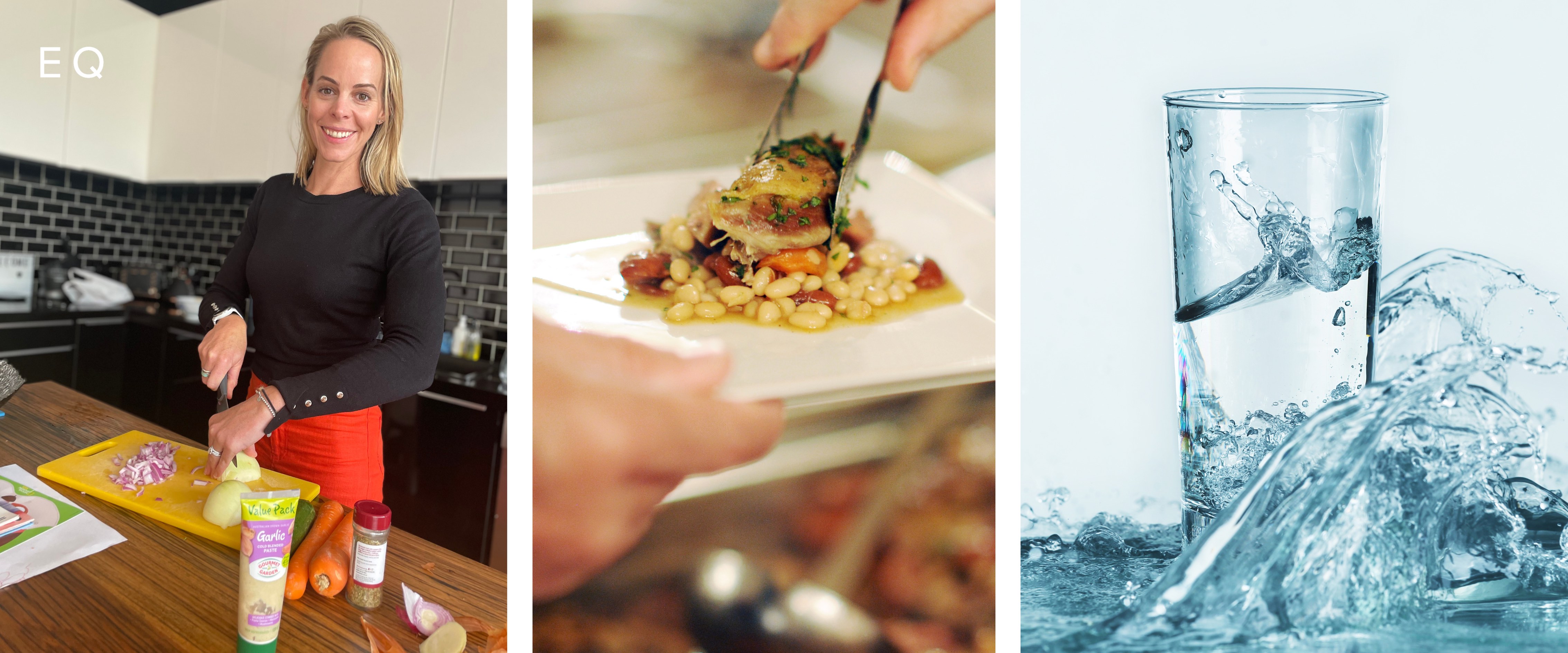Your Body and the Hybrid Workplace
Apr 20, 2023
In the changing environment of the hybrid workplace, one thing remains constant: the importance of caring for your body. Your body is always talking to you, sending signals about its needs and its condition. Whether you find yourself working from home or in the office, it's important that you tune in to your body's energy levels, movement patterns (and the last time you engaged in any) and the quality of fuel you provide it. In this third instalment of our Hybrid Workplace series, we offer insights on how to prioritise your body's wellbeing, empowering it to function at its best and support you at work and in life.
YOUR ENERGY
One of the greatest perks of the hybrid workplace is the flexibility to work from home. But how can you make the most of this freedom? You need to follow the flow of your body's natural energy rhythm. Just as tides ebb and flow, so too does your alertness, focus and creativity throughout the day.
To optimise your productivity, you'll want to schedule your tasks during your individual peak periods. Research suggests that workers who work during these high-energy times tend to produce higher quality work. Meanwhile, taking a break during periods of low energy can stave off burnout and give you the recharge you need to power through the day.
But it's not just about scheduling individual tasks. To get the most out of your meetings, schedule virtual ones during your peak communication and collaboration periods, and in-person ones during times when you're more inclined to build relationships and brainstorm creatively.
By understanding your body's circadian rhythm type, you can tap into your natural energy flow and optimise your productivity.
Don't know your peak periods? Take this quiz to figure out the best times for you to focus and rest: https://chronotype-self-test.info/index.php?sid=61524&newtest=Y&lang=en.
How to add mindful energy shifts to your day:
You need to check in your energy throughout the day and ensure you're carrying the 'vibe' you want from interaction to interaction. Look for the gaps and pauses between your tasks/calls/interactions and consciously cultivate the energy you want. When working from home, we have the luxury of being able to do mindful energy shifts you may not be able to do in the office.
Small energy shifts to add to your day
- Cuddle the family pet
- Take a walk around your block
- Water your plants
Studies have found that listening to music can increase motivation, improve mood, and enhance cognitive performance. In fact, research shows that certain types of music, such as instrumental or classical music, can help improve focus and concentration. So, if you're struggling to concentrate, try putting on some tunes to help you power through your work.
YOUR MOVEMENT
Regular physical activity has been linked to lower levels of anxiety across all age groups, genders and income levels. Our bodies release endorphins during physical activity, which can improve our mood, reduce pain and give us a sense of wellbeing. This means that exercise can be an effective way to manage symptoms of anxiety and depression.
The health benefits of movement don't stop there. It can also
- improve memory,
- attention
- processing speed
- Help with stress management
- Promote relaxation
Here's the thing: it doesn't have to be boring or painful. If you hate doing burpees, don't force yourself to do them. Instead, find a movement habit that brings you joy and fits into your schedule.
There are plenty of opportunities to add movement to your daily routine, whether you're at work or at home.
At work:
- Try walking to the office or getting off the bus a stop early
- Take a lunchtime walk or class
- Organise a team sport
At home:
- Start your day with a Fake Commute (link to Blog 2)
- Use the flexibility of time to do a class during the day
- Take the dog for a walk.
And if you're stuck sitting down all day at home or at work, make sure to take breaks and stretch. Remember, movement doesn't have to be a chore. Find what works for you, and make it fun!
YOUR GUT HEALTH
Your gut health and its impact on your overall wellbeing can’t be ignored. The gut microbiome – the world of microorganisms that live in your digestive tract – is a key player in keeping you in good health. But it doesn't end there, recent research has revealed that the gut and the brain are connected in ways that we're only beginning to understand.
Maintaining healthy eating habits is essential for keeping up energy levels, especially when you're splitting your time between home and the office. When you're working, it's easy to snack on unhealthy foods and skip meals, but that can have a serious impact on your cognitive performance. On the other hand, eating a balanced diet rich in fruits, vegetables, lean proteins, and whole grains can help keep you focused and energised.
3 easy tips to improve your Gut Health:
- Increase your intake of fibre. Fibre-rich foods, like whole grains, fruits, and vegetables, can help promote healthy digestion and support the growth of beneficial gut bacteria.
- Ignore the temptation of processed and high-fat foods for convenience. Prioritise whole, minimally processed foods and lean protein sources, like grilled chicken or tofu, to maintain a healthy gut.
- Stay hydrated. Dehydration can lead to fatigue, headaches and a decrease in cognitive performance. Drinking water throughout the day can help prevent these negative effects and improve your overall energy levels. So, make sure to keep a water bottle on hand and sip throughout the day to stay hydrated and energised.
Remember to prioritise your body's needs no matter the work environment you are in. Making small changes to your behaviour will have a big impact on your health and performance.
Get more nutrition tips from Ashley Whitehead to help nourish your mind and body.
Get more energy tips from Jay Pottenger to create sustainable, productive habits that prioritise your mental and physical health.
References:
- Warburton, D. E., Nicol, C. W., & Bredin, S. S. (2006). Health benefits of physical activity: the evidence. Canadian Medical Association Journal, 174(6), 801-809.
- Stubbs, B., Koyanagi, A., Hallgren, M., Firth, J., Richards, J., Schuch, F., ... & Veronese, N. (2019). Physical activity and anxiety: A perspective from the World Health Survey. Journal of affective disorders, 246, 62-67.
- Hillman, C. H., Erickson, K. I., & Kramer, A. F. (2008). Be smart, exercise your heart: exercise effects on brain and cognition. Nature Reviews Neuroscience, 9(1), 58-65.
- Salmon, P. (2001). Effects of physical exercise on anxiety, depression, and sensitivity to stress: a unifying theory. Clinical Psychology Review, 21(1), 33-61.
- Wen, C. P., Wai, J. P., Tsai, M. K., Yang, Y. C., Cheng, T. Y., Lee, M. C., ... & Wu, X. (2011). Minimum amount of physical activity for reduced mortality and extended life expectancy: a prospective cohort study. The Lancet, 378(9798), 1244-1253.
- Cryan JF, O'Mahony SM. The microbiome-gut-brain axis: from bowel to behavior. Neurogastroenterology and motility. 2011;23(3):187-92.
- Foster JA, McVey Neufeld KA. Gut-brain axis: how the microbiome influences anxiety and depression. Trends in neurosciences. 2013;36(5):305-12.
- Gareau MG. Microbiota-gut-brain axis and cognitive function. Advances in experimental medicine and biology. 2014;817:357-71.
- Kennedy DO, Scholey AB. The psychopharmacology of European herbs with cognition-enhancing properties. Current pharmaceutical design. 2006;12(35):4613-23.




